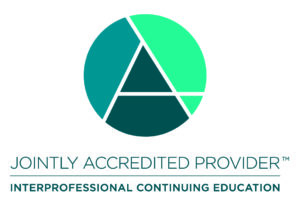Transcending Anger with ACT (Español)
About This Course
Schedule
Sesión 1: 18 de marzo de 2022, 4 pm-6 pm EDT
Entendiendo la ira: clientes e ira
Entender el cambio: la función de la ira
Session 2: 25 de marzo de 2022, 4 pm-6 pm EDT
Abierto y consciente: Dejar ir la ira
Abierto y consciente: dejar que la ira SEA
Session 3: 8 de abril de 2022, 4 pm-6 pm EDT
Consciente y comprometido: no eres tu ira
Consciente y comprometido: libertad a pesar de la ira
Session 4: 15 de abril de 2022, 4 pm-6 pm EDT
Compasión y perdón en presencia de ira
Avanzar: ira funcional
Learning Objectives
Participants will be able to:
- Describir la ira, sus diferentes funciones y resultados desde una perspectiva conductual contextual.
- Discutir el papel de la fusión y su antídoto, la defusión, en relación con la ira.
- Describir cómo el apego a las descripciones de uno mismo y de los demás limita el cambio de comportamiento.
- Utilizar las habilidades de la dfusión, la atención plena, el yo como contexto y la descripción de valores para ayudar a los clientes a manejar la ira.
- Describir el papel de la compasión y el perdón al relacionarse con la ira de manera diferente.
- Reconocer objetivos INTELIGENTES en relación con los valores.
- Discriminar la ira apropiada relacionada con problemas sociales.
Continuing Education
Please review complete CE and conflict-of-interest disclosure information prior to registering. This live online course is sponsored by Praxis Continuing Education and Training and is approved for 8 CE Hours by the following listed below. There was no commercial support for this activity. None of the planners or presenters for this educational activity have relevant financial relationship(s) to disclose with ineligible companies whose primary business is producing, marketing, selling, re-selling, or distributing healthcare products used by or on patients.
Praxis CET maintains responsibility for the program with the CE approvals outlined below:
-
Joint Accreditation:
 In support of improving patient care, Praxis Continuing Education and Training, Inc is jointly accredited by the Accreditation Council for Continuing Medical Education (ACCME), the Accreditation Council for Pharmacy Education (ACPE), and the American Nurses Credentialing Center (ANCC), to provide continuing education for the healthcare team.
In support of improving patient care, Praxis Continuing Education and Training, Inc is jointly accredited by the Accreditation Council for Continuing Medical Education (ACCME), the Accreditation Council for Pharmacy Education (ACPE), and the American Nurses Credentialing Center (ANCC), to provide continuing education for the healthcare team. - Nursing: Praxis Continuing Education and Training, Inc designates this activity for a maximum of 8 ANCC contact hours.
- Physicians: Praxis Continuing Education and Training, Inc designates this live internet activity for a maximum of 8 AMA PRA Category 1 Credits™. Physicians should claim only the credit commensurate with the extent of their participation in the activity.
-
Psychologists:
 Continuing Education (CE) credits for psychologists are provided through the co-sponsorship of the American Psychological Association (APA) Office of Continuing Education in Psychology (CEP). The APA CEP Office maintains responsibly for the content of the programs.
Continuing Education (CE) credits for psychologists are provided through the co-sponsorship of the American Psychological Association (APA) Office of Continuing Education in Psychology (CEP). The APA CEP Office maintains responsibly for the content of the programs. - Social Workers: As a Jointly Accredited Organization, Praxis Continuing Education and Training, Inc is approved to offer social work continuing education by the Association of Social Work Boards (ASWB) Approved Continuing Education (ACE) program. Organizations, not individual courses, are approved under this program. State and provincial regulatory boards have the final authority to determine whether an individual course may be accepted for continuing education credit. Praxis Continuing Education and Training, Inc maintains responsibility for this course. Social workers completing this course receive 8 clinical continuing education credits.
- Drug and Alcohol Counselors:This course has been approved by Praxis Continuing Education and Training, Inc, as a NAADAC Approved Education Provider, for 8 CE hours. NAADAC Provider #165310, Praxis Continuing Education and Training, Inc, is responsible for all aspects of its programming.
-
National Counselors:
 Praxis Continuing Education and Training, Inc. has been approved by NBCC as an Approved Continuing Education Provider, ACEP No. 6759. Programs that do not qualify for NBCC credit are clearly identified. Praxis Continuing Education and Training, Inc. is solely responsible for all aspects of the programs.
Praxis Continuing Education and Training, Inc. has been approved by NBCC as an Approved Continuing Education Provider, ACEP No. 6759. Programs that do not qualify for NBCC credit are clearly identified. Praxis Continuing Education and Training, Inc. is solely responsible for all aspects of the programs. - Behavior Analysts:PraxisCET is an approved BACB ACE Provider # OP-17-2718.
- NY Social Workers:Praxis Continuing Education and Training, Inc is recognized by the New York State Education Department’s State Board for Social Work as an approved provider of continuing education for licensed social workers #SW-0467
- NY Counselors:Praxis Continuing Education and Training, Inc. is recognized by the New York State Education Department’s State Board for Mental Health Practitioners as an approved provider of continuing education for licensed mental health counselors. #MHC-0198.
- NY Psychologists:Praxis Continuing Education and Training, Inc. is recognized by the New York State Education Department’s State Board for Psychology as an approved provider of continuing education for licensed psychologists #PSY-0002.
Prerequisites
Audience
Recommended Reading
References
Walser, R. D. & O’Connell, (in press). The ACT Workbook for Anger: Manage Emotions and Take Back Your Life with Acceptance and Commitment Therapy. New Harbinger, Publications: Oakland, CA.
Barrett, E. L., Mills, K. L., & Teesson, M. (2013). Mental health correlates of anger in the general population: Findings from the 2007 National Survey of Mental Health and Wellbeing. Australian & New Zealand Journal of Psychiatry, 47(5), 470-476.
Lawler-Row, K. A., Karremans, J. C., Scott, C., Edlis-Matityahou, M., & Edwards, L. (2008). Forgiveness, physiological reactivity and health: The role of anger. International Journal of Psychophysiology, 68(1), 51-58.
Maan Diong, S., Bishop, G. D., Enkelmann, H. C., Tong, E. M., Why, Y. P., Ang, J. C., & Khader, M. (2005). Anger, stress, coping, social support and health: Modelling the relationships. Psychology & Health, 20(4), 467-495.
Traister, R. (2018). Good and mad: The revolutionary power of women’s anger. Simon and Schuster.
Corbin, N. A., Smith, W. A., & Garcia, J. R. (2018). Trapped between justified anger and being the strong Black woman: Black college women coping with racial battle fatigue at historically and predominantly White institutions. International Journal of Qualitative Studies in Education, 31(7), 626-643.
Wu, Q., Chi, P., Zeng, X., Lin, X., & Du, H. (2019). Roles of anger and rumination in the relationship between self-compassion and forgiveness. Mindfulness, 10(2), 272-278.
Landmann, H., & Hess, U. (2017). What elicits third-party anger? The effects of moral violation and others’ outcome on anger and compassion. Cognition and emotion, 31(6), 1097-1111.
Refund and Cancellation Policy
We understand, sometimes things come up!
Praxis will offer a full refund to registrants of both live and live-online trainings who cancel their registration up to 14 days before the course or workshop start date, minus an administrative processing fee of $30 for a 2-day workshop or online course, and a $50 fee for a 4-day workshop. If cancelled within 14 days, no refund will be issued, however, a credit for the same amount will be applied toward another learning product, which expires within 1 year. Please contact us at online@praxiscet.com to cancel a registration.
